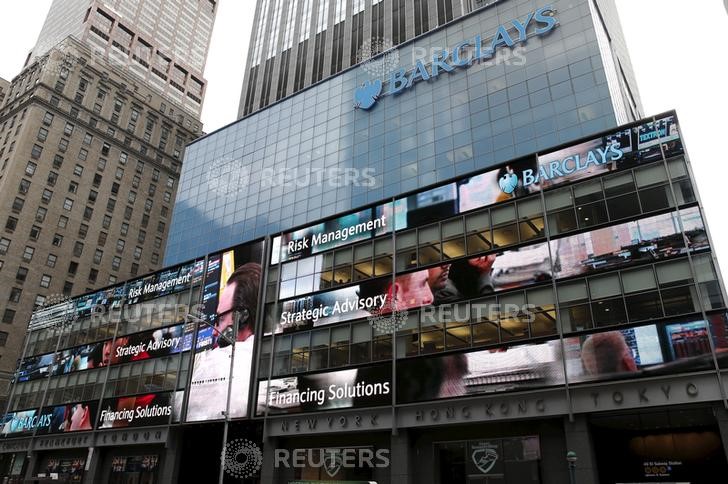By Jonathan Stempel
NEW YORK (Reuters) - Major U.S. stock exchanges and Barclays (LONDON:BARC) Plc on Wednesday won the dismissal of nationwide litigation in which pension funds and other investors accused them of rigging markets to benefit high-frequency traders.
U.S. District Judge Jesse Furman in Manhattan said federal law affords exchanges "absolute immunity" from the plaintiffs' key claims, including over the creation of "complex order types" and proprietary data feeds that can benefit rapid traders, because of their status as self-regulatory organizations.
In a 51-page decision, Furman also said the plaintiffs did not show they reasonably relied on Barclays' misrepresentations about the safety of its Barclays LX "dark pool," including that they were not at risk of being exploited by fast traders.
The lawsuit accused Barclays and seven exchanges including Nasdaq, Intercontinental Exchange Inc's New York Stock Exchange, BATS Global Markets and CHX Holdings Inc's Chicago Stock Exchange of giving high-frequency traders favoured treatment, costing less-favoured investors billions of dollars.
Several regulators are also investigating dark pools, and New York Attorney General Eric Schneiderman has sued Barclays.
High-frequency traders use computer algorithms to gain split-second trading advantages, and were accused of rigging markets in Michael Lewis' 2014 best-seller "Flash Boys."
Furman alluded to Lewis in saying it is for Congress and U.S. authorities such as the Department of Justice and Securities and Exchange Commission to level the playing field for investors, rather than let private plaintiffs do their work.
"Lewis and the critics of HFT may be right in arguing that it serves no productive purpose and merely allows certain traders to exploit technological inefficiencies in the markets at the expense of other traders," he wrote. "They may also be right that there is a need for regulatory or other action from the SEC or entities such as the exchanges and Barclays. Those, however, are debates and tasks for others."
Patrick Coughlin, a lawyer representing several pension fund plaintiffs, said: "We're disappointed that the judge thought the exchanges deserved immunity as to complex order types. The way they were implemented disadvantaged our clients. We will review the opinion and determine whether to appeal."
Barclays said it is pleased with the "thorough and well-reasoned" decision. The exchanges declined to comment.
Furman said one plaintiff, Great Pacific Securities may amend its lawsuit against Barclays, calling it premature to say doing so would be futile. A lawyer for the Costa Mesa, California-based firm was not immediately available for comment.

The case is In re: Barclays Liquidity Cross and High Frequency Trading Litigation, U.S. District Court, Southern District of New York, No. 14-md-02589.